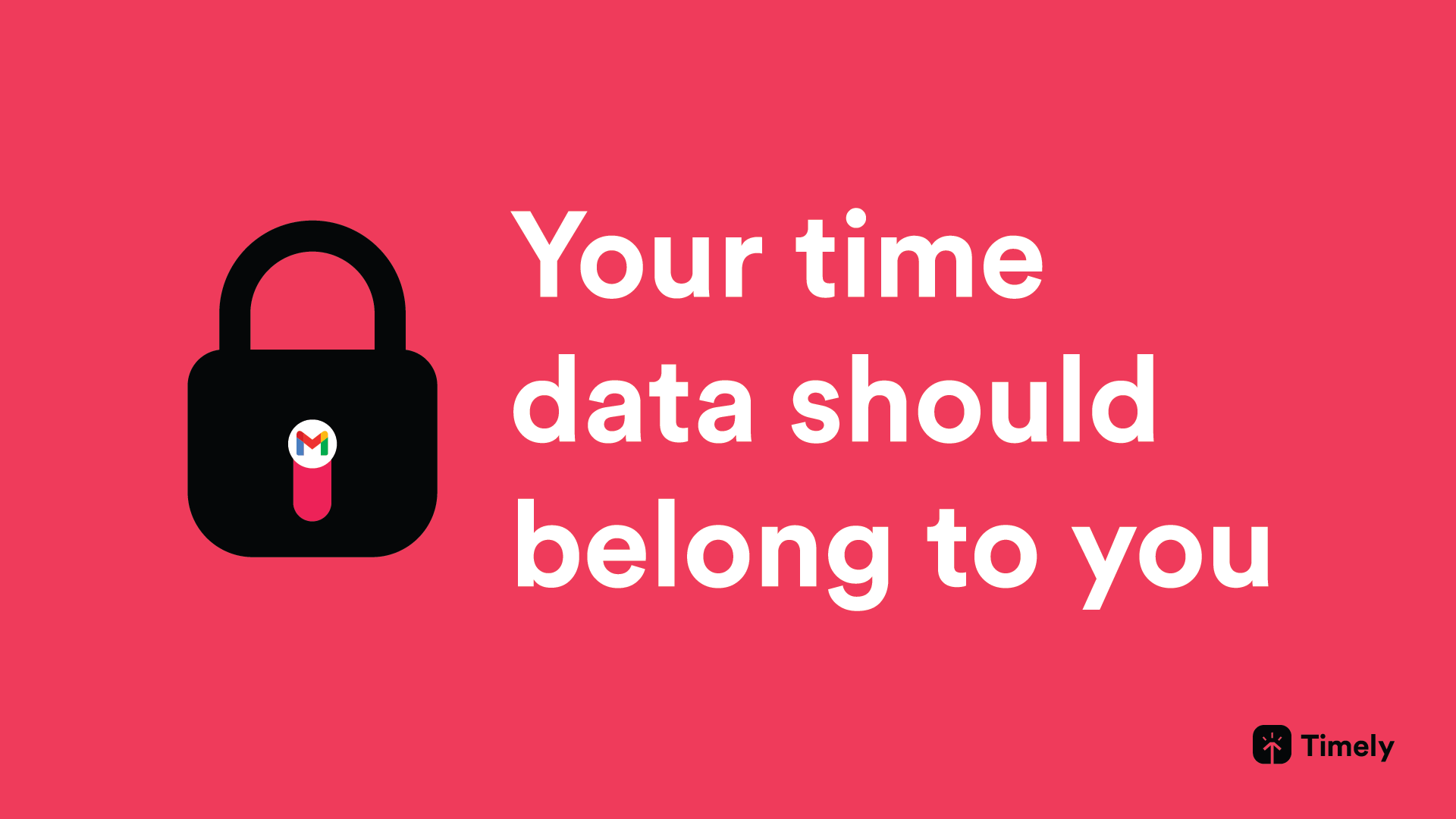Time tracking and the privacy problem
Time tracking tools have become a staple in the workplace, especially for hybrid and distributed teams. Time data helps businesses make smarter decisions, prevent burnout, manage workload capacity, and keep reporting accurate and actionable.
But when time tracking is implemented more as surveillance, it breeds anxiety and resistance. Employees start to feel undervalued, micromanaged and mistrusted - a surefire way to erode productivity, motivation and overall happiness. And nobody wants that.
So how do we balance both sides? The answer lies in adopting privacy-first time tracking tools.
Protecting how time data is collected, stored and shared is what separates empowering technology from intrusion. As AI-powered and automatic time tracking becomes more common, employee privacy is no longer a nice-to-have, it’s essential.

Why privacy builds the foundation for honest time data
When employees feel like they’re being watched, they round up their hours, skip tracking more regularly or under-report. Nobody wants their every move scrutinized. People track more accurately when they know they’re not being watched.
A private time tracking tool will lead to stronger adoption and higher data quality. The kind of time data business can actually rely upon.
And for individuals, personal, privacy-based productivity insights offer a space for genuine self-improvement, without feeling any judgement. It’s about empowerment, not exposure.

Data Ownership: Why your time data should belong to you
Your personal time data, your daily “Memories”, reflect how you think, focus and spend your energy. It’s part of your digital identity, which means it’s deeply personal. That information should always belong to you, not to your employer or the software you use. It’s private.
Ethical time tracking tools put users in control over how data is collected, stored and used. You decide how it is used. And really, why would you have it any other way?
Using time tracking tools with built-in data anonymization adds another layer of protection. It safeguards individual privacy, supports compliance with data protection laws, and builds transparent and trust between teams. It’s a fundamental right.
Control creates confidence: deciding who sees what
Privacy doesn’t mean hiding information, it means being intentional about visibility.
Time tracking tools like Timely offer flexible User Access Levels that let managers decide who can view projects, reports, or total hours. This structure supports collaboration and accountability without crossing into micromanagement.
It ensures everyone sees only what they need to do their job, nothing more and nothing less. Teams build trust when privacy boundaries are clearly defined.
No ads, no selling, no hidden data deals
It’s worth saying clearly: your time data should never be a business model. Paid, privacy-first platforms like Timely earn their money from subscriptions, not from trading or monetizing user information. It’s a deliberate choice that ensures your interests always come first. When a tool’s profit depends on ads or data sharing, privacy takes a back seat - and that is a major red flag.
Time tracking tools like Timely are built around this principle. Your data is never sold to third parties, and no ad networks operate within the tool. Where data access is necessary, it only happens with explicit user permission and full transparency.
Even Timely’s AI operates within a closed system, meaning it never compromises user privacy. Time tracking can be intelligent and ethical at the same time.
Privacy-first future for time tracking
Older time tracking tools were built in very different digital age, perhaps when collecting personal data was routine and few people stopped to ask where that information went.
Those days are over.
Today, privacy isn’t a background concern, it’s a baseline expectation.
With GDPR and similar privacy laws around the world, data protection has become a central part of how technology is evaluated. Rightfully so.
We all demand transparency, choice, and control.
The future of time tracking is therefore private by design. Modern tools like Timely anonymize and safeguard data automatically, offering detailed and actionable analytics without revealing personal information.
It’s not just more ethical, it builds long-term trust, strengthens adoption and produces more reliable insights.
The future of time tracking empowers people to work confidently knowing their information remains secure.
Read about Privacy at Timely here.



